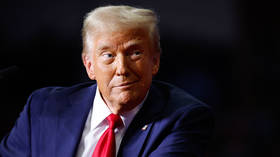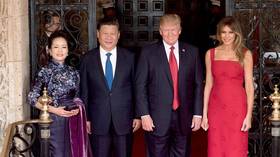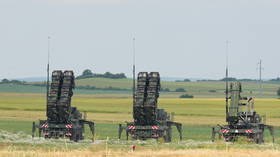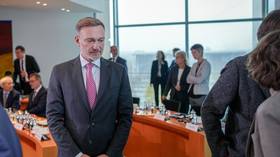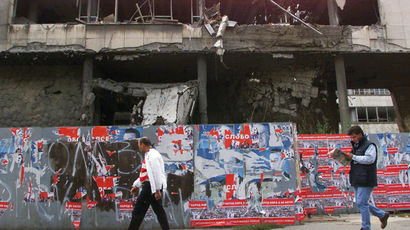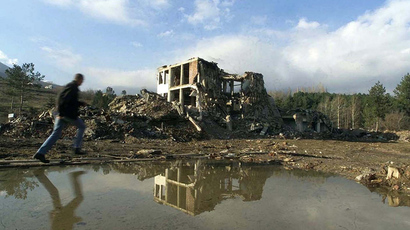Lavrov: Ukraine crisis reminds of Belgrade bombing in 1999
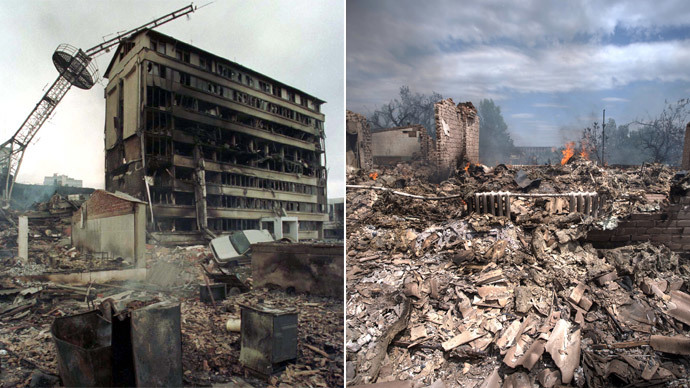
Washington should feel responsibility for the crisis in Ukraine, said Russia’s Foreign Minister Sergey Lavrov pointing out that the current events in the country recall NATO bombings of Yugoslavia in 1999.
"We have reason to believe that the leading European
countries understand their responsibility for what is happening
in Ukraine. We want the US to join [the EU in] understanding this
responsibility," said Lavrov during a joint media conference
with Bulgaria's Prime Minister Plamen Oresharski in Sofia on
Monday.
Lavrov, who is in Bulgaria for a two-day visit, urged
international partners to put aside their ambitions and think
about the rescue of civilian lives in the south-east of Ukraine.
“Now we need to think about saving lives,” said Russia’s
minister stressing that the ceasefire in south-eastern Ukraine
must not be delayed under any circumstances as that would lead to
new casualties.
"It is in our common interests to stop the bloodshed as soon
as possible. There can be no reservations or pretexts for
delaying an immediate ceasefire which more and more affects
peaceful people and civilian persons…"
Lavrov believes the truce will contribute to the start of peace
negotiations, which should respect the rights of all regions of
the country and set the future political roadmap for the solution
of the crisis.

The agreement reached in Berlin last Wednesday between
Germany, France, Russia and Ukraine to establish a Contact group
with the goal of reaching an unconditional and mutually agreed
ceasefire was not put into force, the FM explained.
The meeting of the Contact Group on Sunday was incomplete given
the absence of representatives of the militia from the
south-east, Lavrov elaborated after talks with his Bulgarian
colleague Kristian Vigenin in Sofia on Monday.
According to the minister the militia refused to leave the eastern city of Donetsk during the military crackdown on the region, while Kiev rejected their invitation to come to the shelled Donetsk and hold talks there.

During the media conference in Sofia, the minister noted the “current events in Ukraine remind us of Belgrade in 1999," when NATO began its 78-day bombing of Yugoslavia without UN authorization against a sovereign nation that did not pose a threat to members of the alliance.
2,000 civilians died during the devastating airstrikes as NATO bypassed UN approval under a humanitarian pretext to ‘prevent instability spreading’ in the framework of the Kosovo war. The aggression caused a much larger catastrophe than it averted as it destroyed at least 40,000 homes.
#Lavrov: We believe that the @NATORussia Council should not avoid addressing serious issues but be a platform for constructive discussion
— MFA Russia (@mfa_russia) July 7, 2014
Earlier on Monday in an interview with Bulgaria's Focus News Agency, Lavrov pointed out that “the principles of a state's sovereignty and the non-interference into internal affairs [in Ukraine] have priority significance."
“There are no opposing military-political alliances in Europe today," he elaborated. "The creation of any alliances is counter-productive. The events in Ukraine and around it prove this," Lavrov said.



